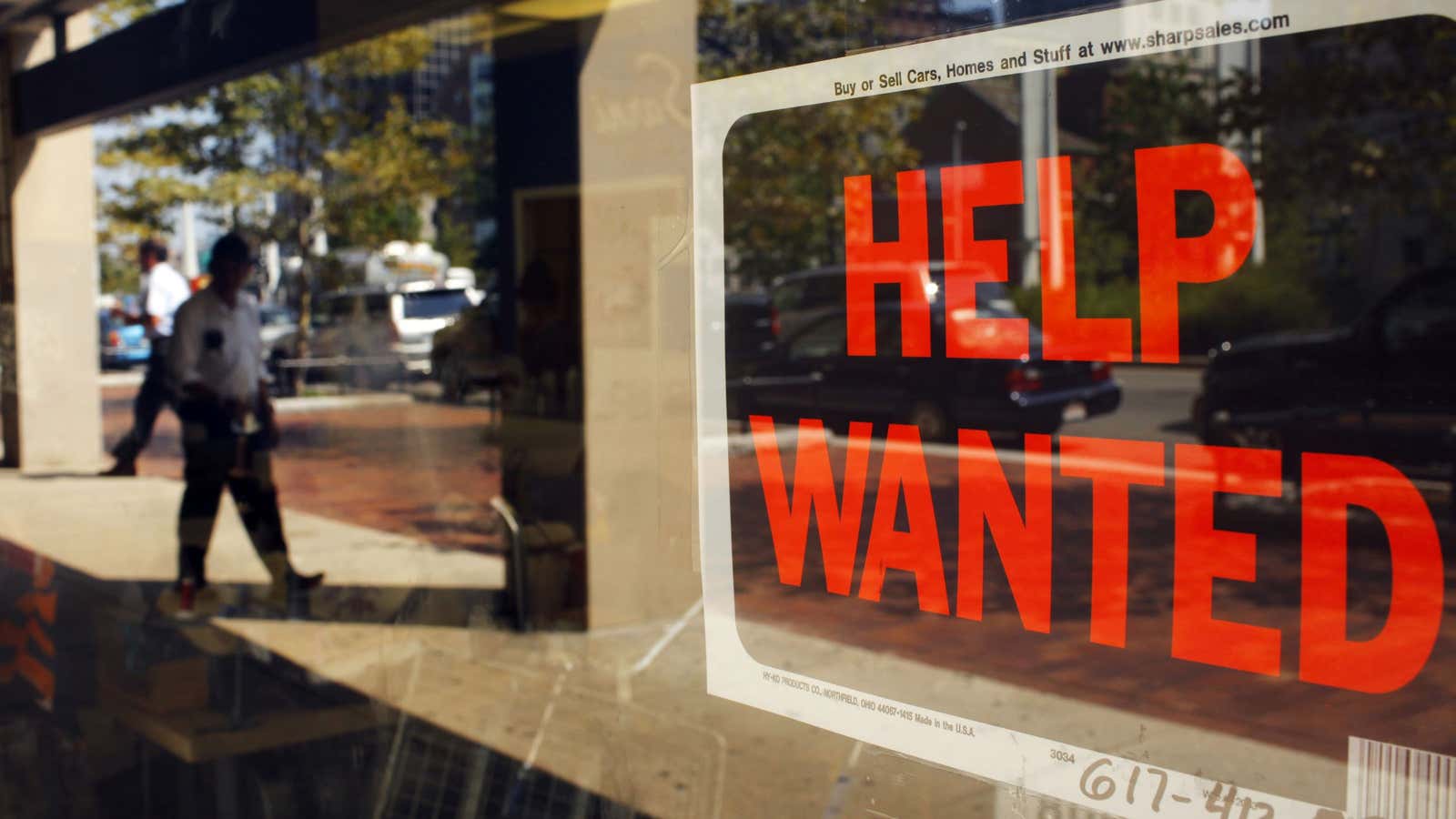The US job market is incredibly strong right now. At 3.8%, the unemployment rate is as low as it has been in almost 50 years. Even people who gave up searching are finding work again.
This means you should probably try to get a new job.
Switching jobs is one of the best ways to earn more money. The best estimates suggest that, on average, people who move jobs get a salary bump of up to 6% (pdf). Economists believe these gains come from workers finding companies where their skills are put to better use. For example, a nurse at a badly run hospital is less valuable than at a good one, so they get paid more by moving from the former to the latter. Or, it might be that that nurse’s strengths are a better match for a different hospital.
There is probably a better job out there for you, too.
The gains to switching jobs are larger in healthy labor markets. As a result, the switching premium has risen throughout the current job expansion. Desperate for talent, many companies are willing to up their offers to attract new employees.
Why, then, aren’t more Americans moving jobs?
Contrary to popular belief, in a variety of ways, the US labor market is far less dynamic than it used to be. According to a 2016 report from the Brooking Institution, compared with previous decades, fewer new jobs are created every year, jobs are less likely to be destroyed, and people are staying at positions longer. Even millennials stay in jobs longer than the previous generation (millennial job hopping is a myth that just won’t die).
Abigail Wozniak, an economist at Notre Dame, is one of the leading experts on the decline of US job market dynamism, and one of the authors of the Brookings Institution report. She says that the reasons for the decline in job switching is something of a mystery for economists.
Wozniak’s research shows that common explanations, like the the aging of the US population and changing home ownership rates, don’t explain the change. Some observers point to the declining number of Americans moving to cities with the best job opportunities, like New York and San Francisco, due to high housing costs. But she says this can’t account for most the reduction, because job switching is also less common among the types of people unlikely to move in the first place.
Wozniak speculates that part of the explanation is a decline in social trust. The share of Americans who say that most people can be trusted fell from about 45% in 1970 to 31% in 2014. Wozniak and her colleagues found that US states where social trust decreased the most also saw the greatest decline in job switching. She thinks it might mean workers are less willing to try something new, and companies are more wary of unknown applicants.
It could also be that changes in social habits could account for the decline, with work comprising an increasingly large share of our social lives. ”These days, another cost of switching is that you might have to stop eating lunch with your friends,” Wozniak explains.
She also warns that, even in a hot job market, not everybody should necessarily be looking for new work. It might make sense for you to stick with their current job because you never know when the economy will go south. Depending on the timing, if you switch jobs just before a downturn, as the newest person you might be the first to get fired when times are tough.
Still, if you haven’t perused job boards, returned headhunters’ calls, or updated your LinkedIn profile in a while, now is probably the time to do it. You might be surprised by how many opportunities are out there, and how much more money you could make by switching things up.
